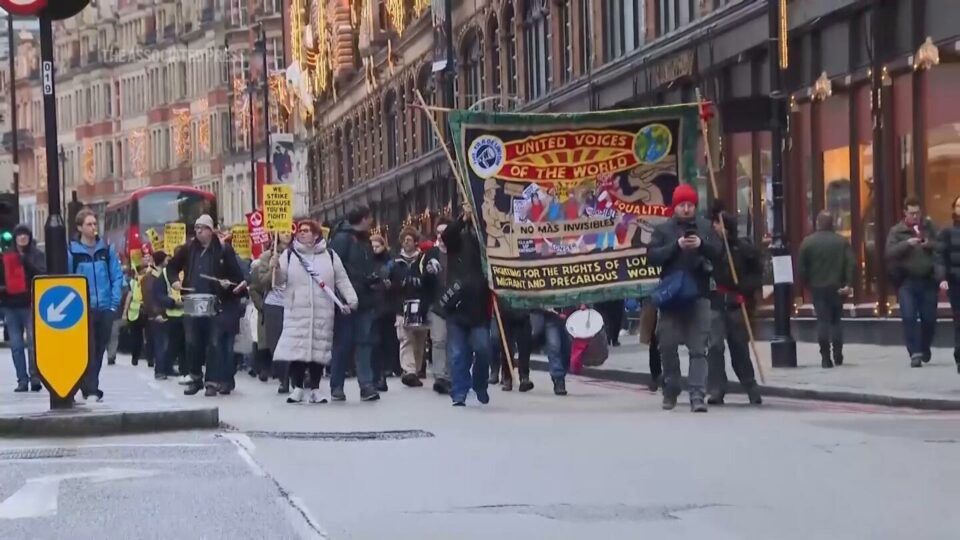Harrods Employees Stage Strike Over Wages and Working Conditions
A sizable group of Harrods employees, recognized as a London landmark in retail, initiated a strike on Saturday. This protest was sparked by ongoing concerns regarding wages and the overall quality of working conditions. The unrest follows revelations regarding substantial financial decisions made by the company’s owners—specifically, the distribution of a staggering $226 million in dividends last year, even as profits plummeted by over 30%.
Concerns Over Fair Compensation
The striking workers are advocating for increased compensation that reflects their contributions to such a prestigious store. With rising living costs and inflation impacting everyday expenses, many believe their pay should be adjusted accordingly. The financial disparities highlighted during this period have ignited tensions between staff and management.
Owner’s Controversial Dividend Decisions
This situation is particularly contentious given that while employee wages remained relatively stagnant, the owners chose to extract significant profits from the business during an economically challenging year. Such decisions have led to frustrations among workers who feel undervalued amidst these fiscal practices.
A Call for Improved Working Conditions
In addition to demands for fair pay, striking employees are also calling attention to necessary improvements in working environments within Harrods. They argue that better conditions not only benefit staff welfare but can also enhance customer experiences at one of London’s most celebrated shopping destinations.
This incident is part of a broader trend seen across various sectors where employees are increasingly vocal about their rights and needs in modern workplaces. Recent statistics suggest that labor strikes have risen sharply in recent years as workers seek more equitable treatment.
The Impact on Retail Dynamics
The repercussions of this strike may extend beyond just Harrods; it could influence retail dynamics across London and perhaps prompt other retailers to reassess their wage structures and labor conditions. As public sentiment shifts towards supporting worker rights, businesses could face pressure to adopt more favorable practices.


